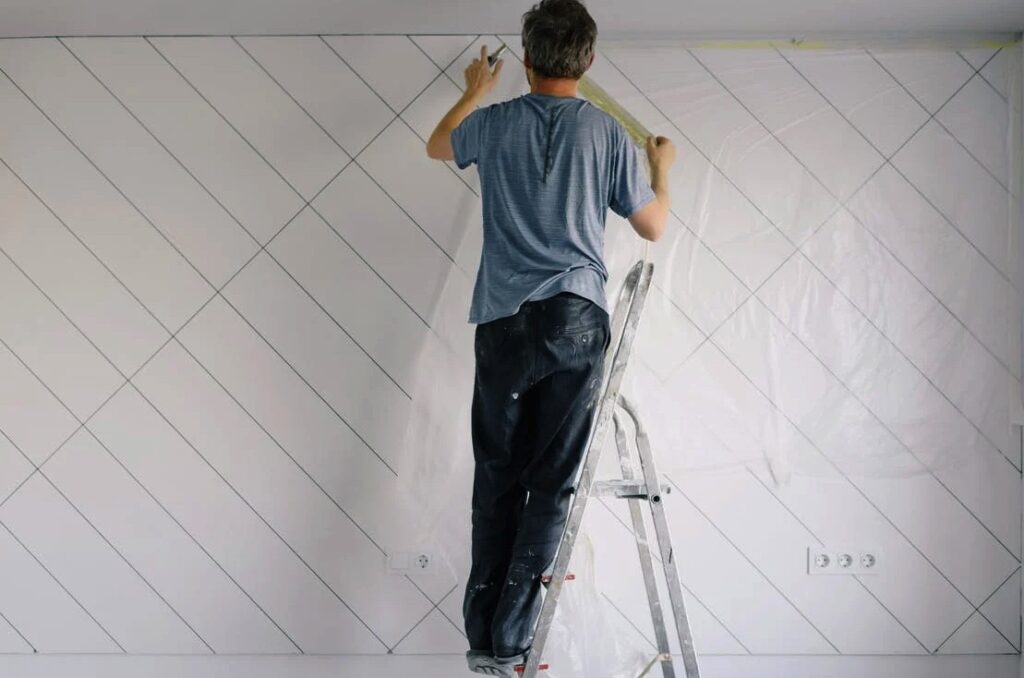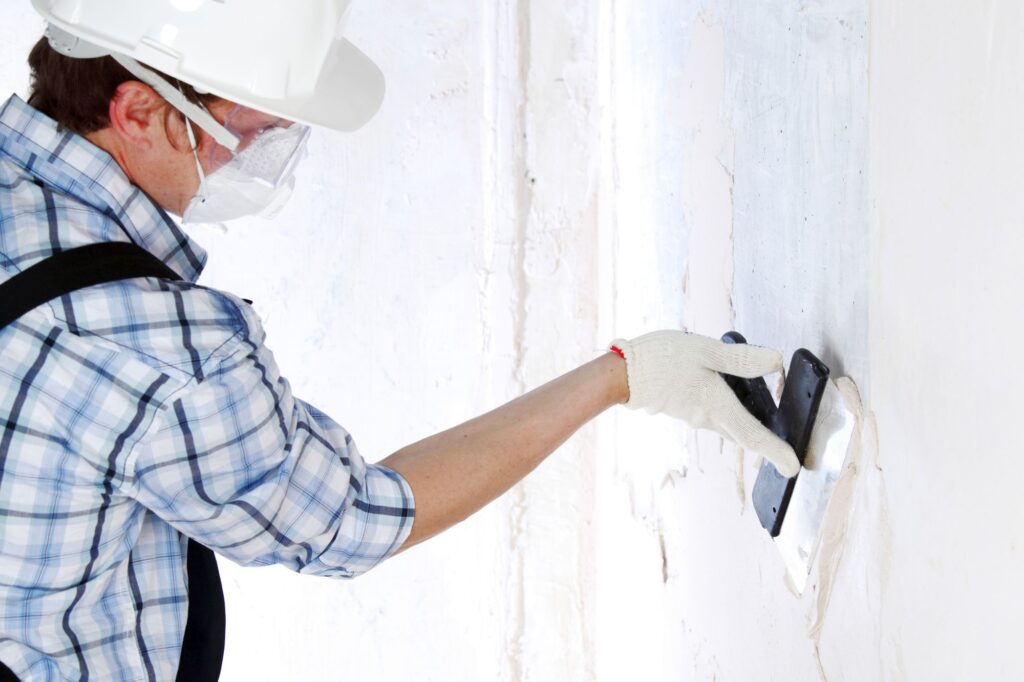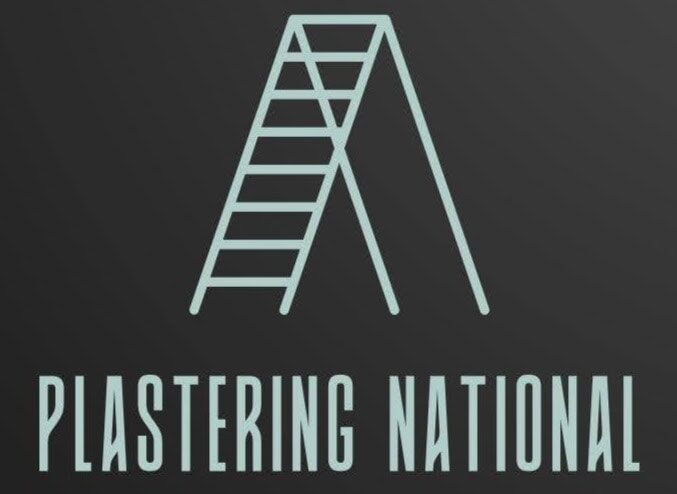Selecting a reliable plastering service is crucial when renovating or constructing a property. This decision can impact the overall appearance, durability, and quality of your walls and ceilings.
With the right approach, you can find a skilled plasterer that meets your requirements and budget. Here are the steps to help you choose the best plastering service provider.
Let’s get straight to the point.
Choosing a reliable plastering service ensures your walls’ and ceilings’ durability and quality. To find the best plasterer, focus on local options, gather recommendations, verify credentials, review past work, and compare multiple quotes.
Prioritise professionals with formal training, experience, and positive reviews. To avoid surprises, ensure clear communication on the process, pricing, and timeline.
Avoid low-cost options that may compromise quality. Monitor progress regularly and inspect the final work to ensure it meets your expectations.
These steps will secure a skilled plasterer who delivers lasting, high-quality results.
Why Hire A Professional Plastering Service?

1. Benefits Of Professional Plastering
Plastering improves aesthetics and strengthens walls and ceilings. Proper plastering ensures the structure can handle mechanical stress and other external factors.
A professional plasterer uses the highest-quality materials to give your property the durability it needs.
2. Understanding The Importance Of Quality Workmanship
Plastering requires expertise and experience. Hiring a professional ensures that your project is completed to the highest standards, saving you time and money in the long run.
Amateur work may lead to cracks or imperfections, which can be costly to fix later. Finding the right plasterer for your project requires thorough research, careful evaluation, and clear communication.
Here’s a step-by-step guide to help you choose the best professional for the job:
Essential Tips For Hiring The Best Plasterer
1. Research Local Options
Start by looking for plasterers in your area. Local professionals are typically more responsive, affordable, and have shorter travel times.
Ask friends, family, or neighbours who recently had plastering work done for recommendations. Their personal experiences can help you identify reliable candidates.
2. Gather Feedback
Personal recommendations are valuable. Talk to those who have hired plasterers before to gather insights about the quality of work, professionalism, and overall satisfaction.
This can help you shortlist the most trusted contractors.
3. Check Experience And Expertise
Experience is essential when selecting a plasterer. Look for contractors with expertise in the plastering you need, such as rendering, skim coating, or decorative finishes.
A well-experienced plasterer is more likely to provide high-quality, lasting results.
4. Verify Credentials
Ensure the plasterer has the necessary qualifications, such as:
- City & Guilds Level 1, 2, or 3 diplomas
- NVQ in Plastering (levels 1, 2, or 3)
- SVQ in Plastering (level 3)
These certifications show that the plasterer has received formal training and follows industry standards.
5. Review Past Work
Ask the plasterer for examples of their previous projects to assess their skill level and style. Additionally, request references to get direct feedback from past clients about their work quality and reliability.
6. Discuss The Plastering Process
Have a detailed conversation with the plasterer about how they plan to complete the project.
Ensure you understand the entire process, from preparation to finishing, so you know what to expect and can ensure transparency throughout the project.
7. Get Multiple Quotations
Obtain at least three quotes from different plasterers. When comparing, consider the quality of materials and artistry, not just the price.
The cheapest option may be better; sometimes, paying more ensures better quality and durability.
8. Read Online Reviews
Check online reviews and ratings on platforms like Google, Yelp, or Trustpilot to get a broader perspective on the plasterer’s reputation.
Reviews can provide insights into the plasterer’s reliability and previous customers’ experiences.
9. Confirm Industry Affiliations
Look for plasterers who are members of professional trade associations. This often signifies a commitment to high standards and best practices within the industry.
10. Request Transparent Pricing
Ask for a detailed, itemised quote that includes all project costs. Clarify whether there are additional charges, such as material costs, to avoid unexpected expenses later.
11. Use Negotiation Tactics
When negotiating, focus on the value rather than just the price. Mentioning referrals or recommendations may help you negotiate a better rate but balance cost with quality.
12. Agree On A Timeline
Establish a clear timeline for project completion. Setting deadlines is important, especially if you need the work done quickly. Make sure the timeline includes allowances for any potential delays.
13. Monitor Progress
Check the plastering progress regularly to ensure that everything is on track. Open communication with the plasterer is key to addressing any issues or delays as soon as they arise.
14. Review The Contract Thoroughly
Before finalising the agreement, carefully review the contract. Ensure it outlines payment terms, completion date, and warranty details.
A thorough contract helps prevent misunderstandings later.
15. Ensure Quality Assurance
Inspect the plasterwork once the project is completed to ensure it meets your expectations. If you spot any imperfections or issues, ask the plasterer to address them promptly.
By following this comprehensive guide, you’ll be able to find a skilled plasterer who meets your needs and ensures high-quality results for your project.
Questions To Ask A Plastering Service Provider

Before making a decision, interview potential plasterers with these key questions:
- What areas of plastering do you specialise in?
- Can you provide references from past clients?
- What is your estimated timeline for the project?
- What is included in your quote, and are there any additional costs?
- Do you have insurance to cover any potential damages?
Avoid Common Mistakes When Choosing A Plasterer
1. Don’t Rush The Decision
Take your time researching and vetting different plasterers. A well-informed choice is more likely to yield satisfying results.
2. Be Wary Of Low Prices
Low-cost services might seem appealing, but they often compromise quality. Ensure that your investment is in quality materials and skilled artistry.
3. Understand Contract Terms
Before signing any contract, read through the terms thoroughly. Ensure that all aspects of the project are covered, including timelines, costs, materials, and any guarantees.
Materials And Equipment Used By Plasterers
1. Standard Equipment
Plasterers often use mixers, power drills with attachments, scaffolding, and various plastering materials. Verify that the contractor can access all the necessary equipment to ensure a smooth and efficient job.
2. Quality Of Materials
Ensure that the plasterer uses high-quality materials for interior and exterior surfaces. Using the right products is crucial for the longevity of the plasterwork.
Conclusion
Choosing the right plastering service provider requires careful consideration and research. Following these guidelines ensures your home or commercial space receives the best plastering work.
Quality plastering enhances the appearance of your property and adds to its durability and value. To achieve outstanding results, prioritise experience, reliability, and clear communication.
FAQs About Plastering Service
What should I do before a plastering?
Before plastering you need to check for any loose plaster or cracks. If you find any small holes, fill themwith filler. If you find any large areas that have flaky plaster, make these good by hacking them back and then applying a bonding agent.
How do you know if plastering is good?
A good plasterer will have it smooth and flat with no blemishes. Corners should have a metal strip running down them, this provides a clean straight edge. Also they should not leave plaster smeared over window frames or skirting boards etc. A good plasterer is hard to find.
What is the important in plastering?
During your home’s construction, plastering makes the rough surfaces of the walls smooth. Plastering covers rough edges and uneven surfaces, thus increasing durability and strengthening walls. Plastering also gives a good finish to the walls of your house and this will make your home look appealing.
Which material is best for plastering?
Cement plaster is the best bet when it comes to plastering exterior walls because it is moisture-resistant and will protect the wall against climate changes as well as environmental pollution. Moreover the durability factor in cement plaster makes it the ideal choice for internal plastering too.
Is plastering waterproof?
Polished or Venetian plaster in its natural form is not waterproof, you can apply wax or some sealants to make it water resistant but it will never be totally waterproof.

